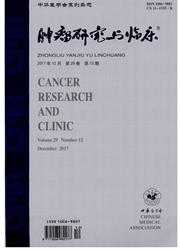

 中文摘要:
中文摘要:
甲胎蛋白(AFP)复杂的结构决定其在肝癌细胞生长过程中扮演多功能的角色。AFP不仅具有促进肝癌细胞增生的作用,而且还具有抑制肿瘤患者的免疫应答作用。最近研究表明AFP能损伤肝癌患者树突状细胞(DCs)的功能和诱导DCs凋亡;AFP可能通过调节DCs表型分子的表达,抑制DCs转变为成熟的抗原提呈细胞(APC)以及通过影响淋巴细胞或肝癌细胞的肿瘤坏死因子(TNF)家族及其受体的表达,抑制癌细胞内Caspase活性,导致肝癌细胞逃避机体免疫监视。
 英文摘要:
英文摘要:
Alpha fetoprotein(AFP) plays multi-role in regulating the growth of hepatocellular carcinoma ceils, because of AFP has a complex molecular structure. AFP not only can promote the proliferation of hepatoma cells, but also can inhibit the immune response in liver cancer patients. Recently, documents showed that AFP has a capability to impair the function of dentritic cells(DCs), and AFP could induce DCs to death. AFP restrain DCs transform to matured antigen presenting cell through regulating the phenotype molecule express in the membrane of DCs, and AFP also influence the expression of tumor necrosis factor family and its receptor in lymphocytes or in hepatoma cells, AFP also could inhibit the activity of caspase in tumor cells, possesses these effects of AFP result in the hepatoma cells escape the immune surveillance.
 同期刊论文项目
同期刊论文项目
 同项目期刊论文
同项目期刊论文
 期刊信息
期刊信息
